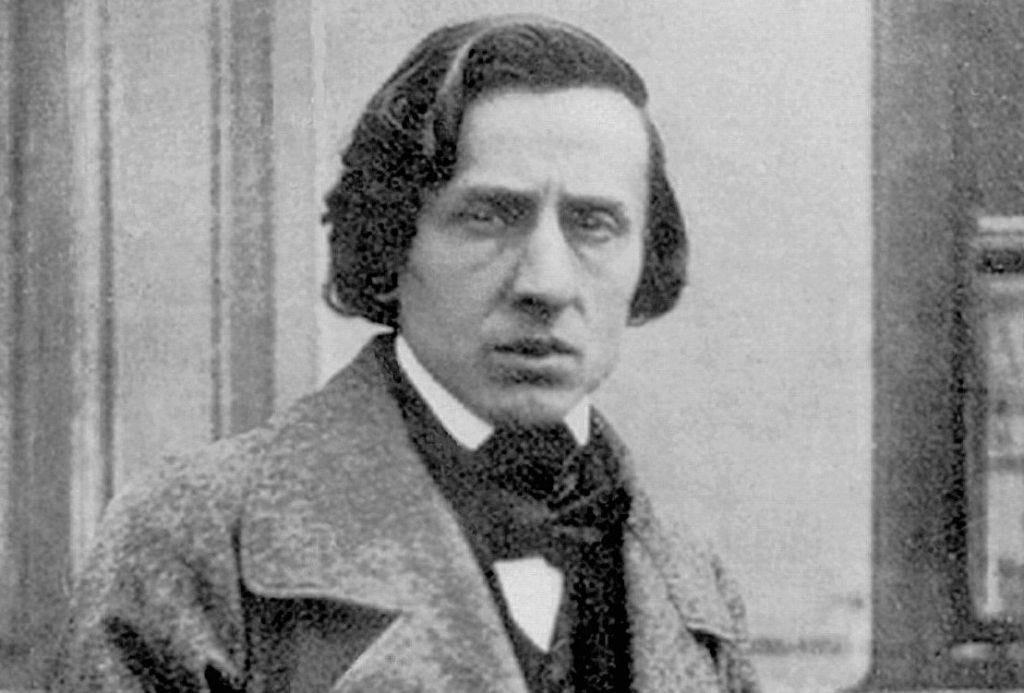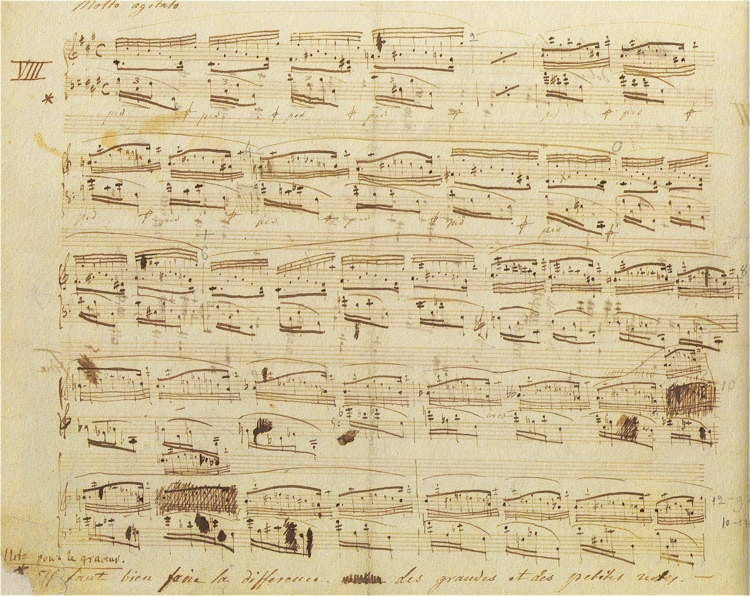
Between the years 1835–1839, Chopin wrote twenty-four small musical vignettes, one for each key, that would be published as his Opus 28. His 24 Preludes was commissioned for what would be around $30,000 today by the French publisher and piano maker, Camille Pleyel, who was also its dedicatee in the French and English editions. Interestingly, for the Breitkopf & Härtel German edition, the préludes were dedicated to his friend, the German pianist and composer, Joseph Christoph Kessler. Both Chopin and Liszt held Kessler in high regard so I thought it’d be interesting to hear some of his music. Here is a recording of Kessler’s 24 Etudes, Op. 20, played on an instrument that was built in the early 19th century and performed by the pianist, John Khouri.
Why did Chopin decide to compose a prelude for all twenty-four major and minor keys? And for you non-musicians reading this, I’m not referring to the black and white keys on the keyboard, but the keys in which music can be played, like B-flat major, or A-sharp minor, or a bouncy C….
Chopin, like every composer, held Bach’s keyboard magnum opus, The Well-Tempered Clavier, as a monumental achievement in composition and theory. It was the first piece to explore all twenty.four keys, for reasons I’ll explore in another posting, and Chopin wanted to emulate this in his Preludes. It is also highly likely that Chopin was familiar with the now forgotten 24 Preludes, Op. 67, written by Johann Nepomuk Hummel. Let’s listen to these very short pieces performed by Mikio Tao.
Today, it is common practice that pianists perform all of them in one sitting. However, Chopin never performed more than four of them on any of his programs and it was not until the 20th century with the Italian pianist, Ferruccio Busoni performing them as a complete set did this occur.
I am a fan of quite a few recordings of these pieces, but I have discovered beautiful performances on YouTube that I’d also like to share.
Much to everyone’s dismay, the great pianist and conductor, Vladimir Ashkenazy, recently announced that he was retiring completely from concert stage and recording studio. He had withdrawn from performing the piano in front of an audience a while ago, but he had maintained an active conducting schedule until very recently. I recently found this great performance of the Préludes, performed by Ashkenazy in 1980.
And a beautifully filmed performance by András Schiff playing Pleyel piano in the concert hall of the Ancien Conservatoire Paris.
And a typically atmospheric and mesmerizing performance by Mikhail Pletnev from 2004 in Moscow.
My favorite recordings are what many would consider to be the standard recommendations, and sometimes there’s just one reason why certain recordings remain popular throughout the years, and that reason is because they’re good!
Maurizio Pollini — Deutsche Grammophon, 1975
Martha Argerich — Deutsche Grammophon 1977
Claudio Arrau — Philips, 1973

